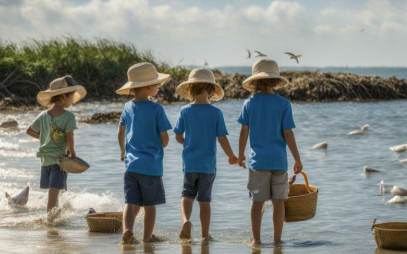The ocean covers over 70% of Earth’s surface, yet it remains one of the most mysterious and least understood parts of our planet. For students interested in science, nature, and exploration, marine studies offer an exciting way to connect academic learning with the natural world. High schools are increasingly offering marine biology and oceanography courses, allowing students to explore marine ecosystems, marine life, and environmental conservation.
Marine studies provide students a unique opportunity to study the biodiversity of oceans, learning about marine organisms’ vital roles in global ecosystems. The skills gained—such as scientific research, problem-solving, and critical thinking—are applicable to many fields. Whether considering a career in environmental science, marine conservation, or medicine, a foundation in marine studies can open the door to numerous opportunities.
High school marine studies typically cover a variety of topics such as marine biology, oceanography, marine conservation, and environmental science. Marine biology explores the diverse world of marine life, from tiny plankton to massive whales, while oceanography looks at the physical characteristics of the ocean, such as currents, waves, and ocean floor geology. Marine conservation focuses on human impacts on oceans and the importance of protecting marine species and ecosystems. Environmental science addresses issues like pollution, climate change, and their effects on marine environments. Through fieldwork, students gain hands-on experience, visiting aquariums, beaches, and participating in community projects like beach cleanups.
Students interested in marine science can pursue careers in areas like marine biology, marine conservation, environmental consulting, or oceanography. Many students who explore marine studies in high school find themselves inspired to pursue careers that contribute to environmental preservation and scientific discovery. To get started, students should talk to their school counselors about marine biology or environmental science courses, join local environmental groups, explore online resources, and gain hands-on experience through internships or volunteering.
In conclusion, marine studies in high school provide an exciting way to learn about the natural world, develop valuable scientific skills, and gain insight into critical environmental issues. Whether students aim to become marine biologists, conservationists, or simply want to understand the oceans, high school offers a great opportunity to begin exploring this fascinating field.














